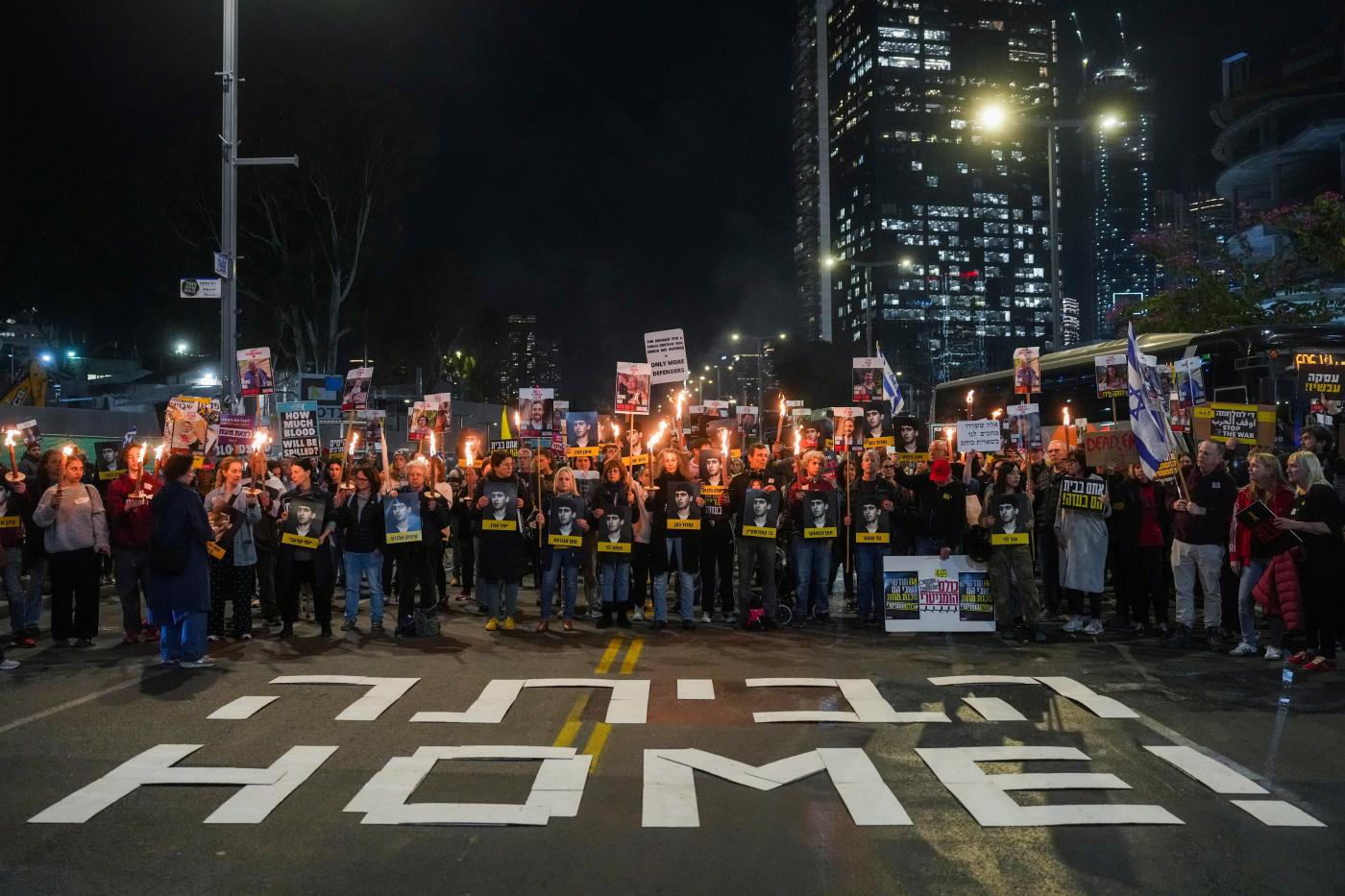
Yair Nativ: Bring all the hostages home
In Israel, loss is an ever-present reality that shapes our collective identity and psychology. This reality became profoundly clear during a brief vacation with my family to Eilat, a vibrant resort city known for its beaches and coral reefs.
Even in this place of escape, the shadow of absence loomed large. At the main terminal, photos of hostages adorned the walls, transforming a transit hub into a solemn gallery of faces. Each photo told a story of longing and the shared hope of bringing them home.
Israel’s small size amplifies the personal nature of national tragedies. In every coffee shop, empty yellow seats serve as a sad reminder of someone missing — a visual symbol of absence. These chairs make the loss tangible, inviting everyone to reflect on the hostages who could be sitting there with us. On an ordinary errand, walking back from buying groceries, I saw a car with a photo of someone who had died — a brother of a friend. This intimate connection to loss is not uncommon here; nearly everyone knows someone affected.
At a recent soccer game, huge banners paid tribute to two fans who are now hostages. In moments meant for joy, these reminders of shared pain brought the crowd of both teams together in solidarity. Even workspaces are imbued with the weight of absence — empty chairs at meetings symbolize those who have not returned, turning professional environments into spaces of remembrance.
Yehonatan Steinberg, a father of six, was killed on October 7th while heroically protecting his soldiers. Yehonatan embodied resilience and selflessness, and his memory lives on through initiatives like Mind Guard, my startup, which developed a feature inspired by his interventions. This feature helps young women identify moments of vulnerability and build resilience, ensuring that his legacy strengthens others.
This project is a part of Next October, founded by Izhar Shay and his family, whose son Yaron was lost on October 7th. This initiative emphasizes remembering every life lost and using that memory to grow stronger as a society, building Israel’s economy.
To the students I’ve met in Boston: life in Israel is complex and deeply intertwined with loss, resilience, and hope. Compassion for the hostages doesn’t negate empathy for the innocent Palestinians caught in this tragedy — far too many have suffered. This column is a call for action — not against people, but against leaders like those of Hamas, whose refusal to release the hostages perpetuates suffering. I have my own criticisms of my leadership as well, but I trust those concerns are being voiced effectively.
Loss here is a shared, sad experience, and if we are to protest, let it be against those who stand in the way of peace and humanity.
Yair Nativ is the CEO of Mind Dome, ‘The First Line of Defense for Your Mind.’

